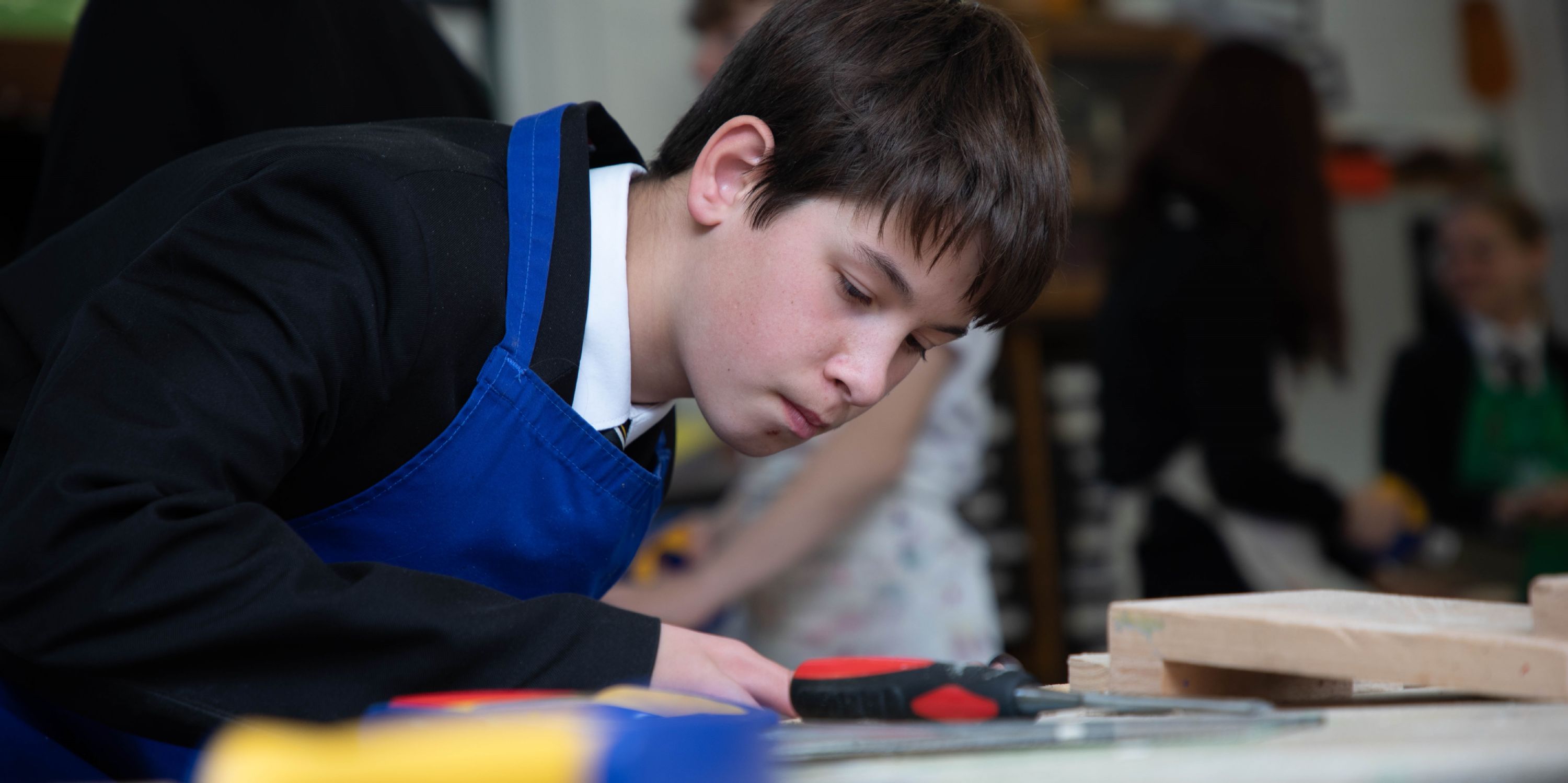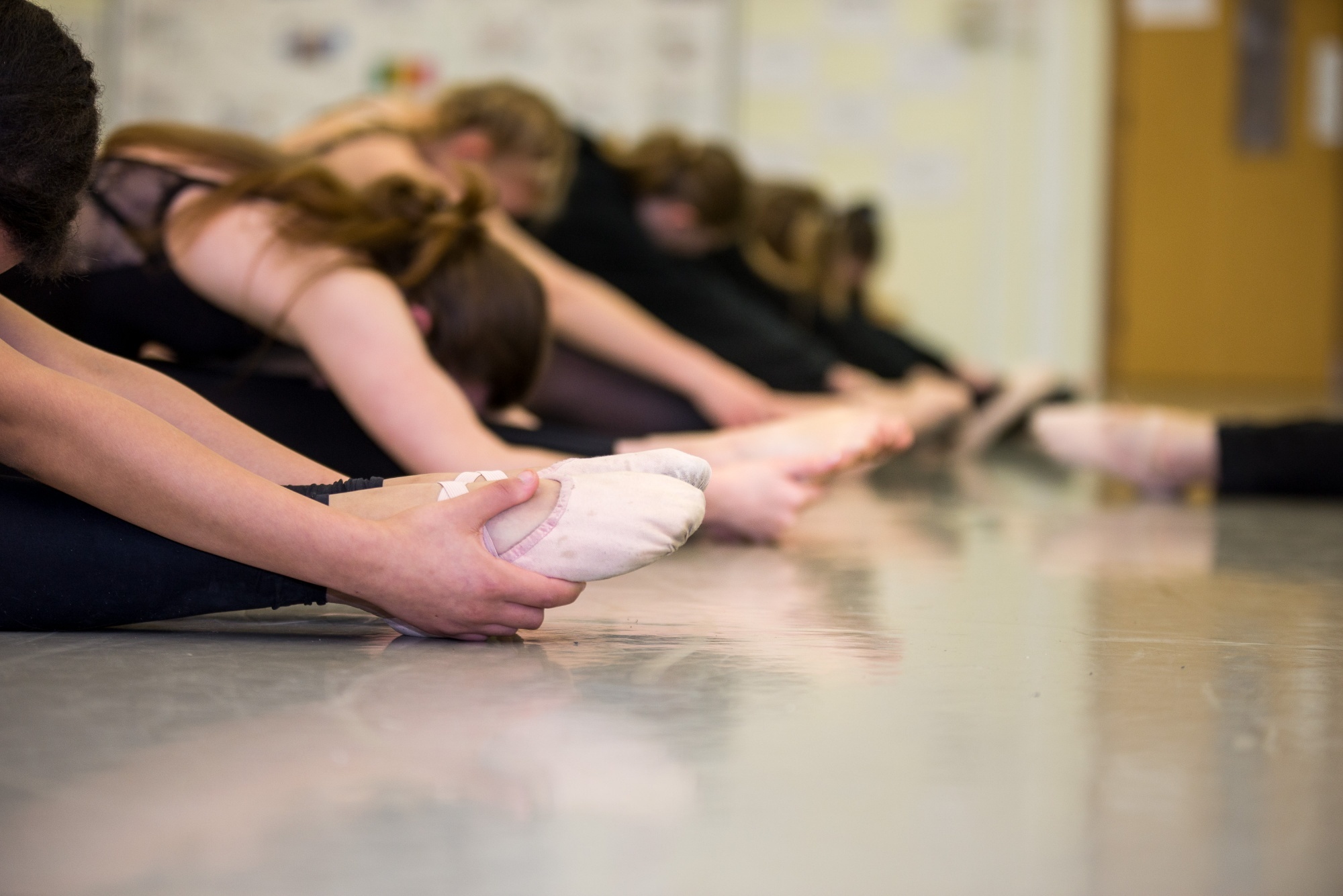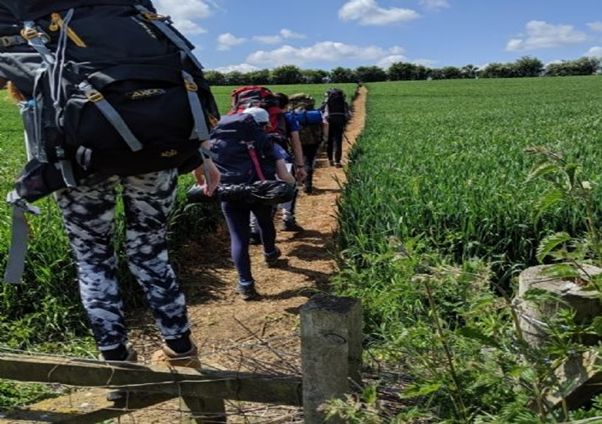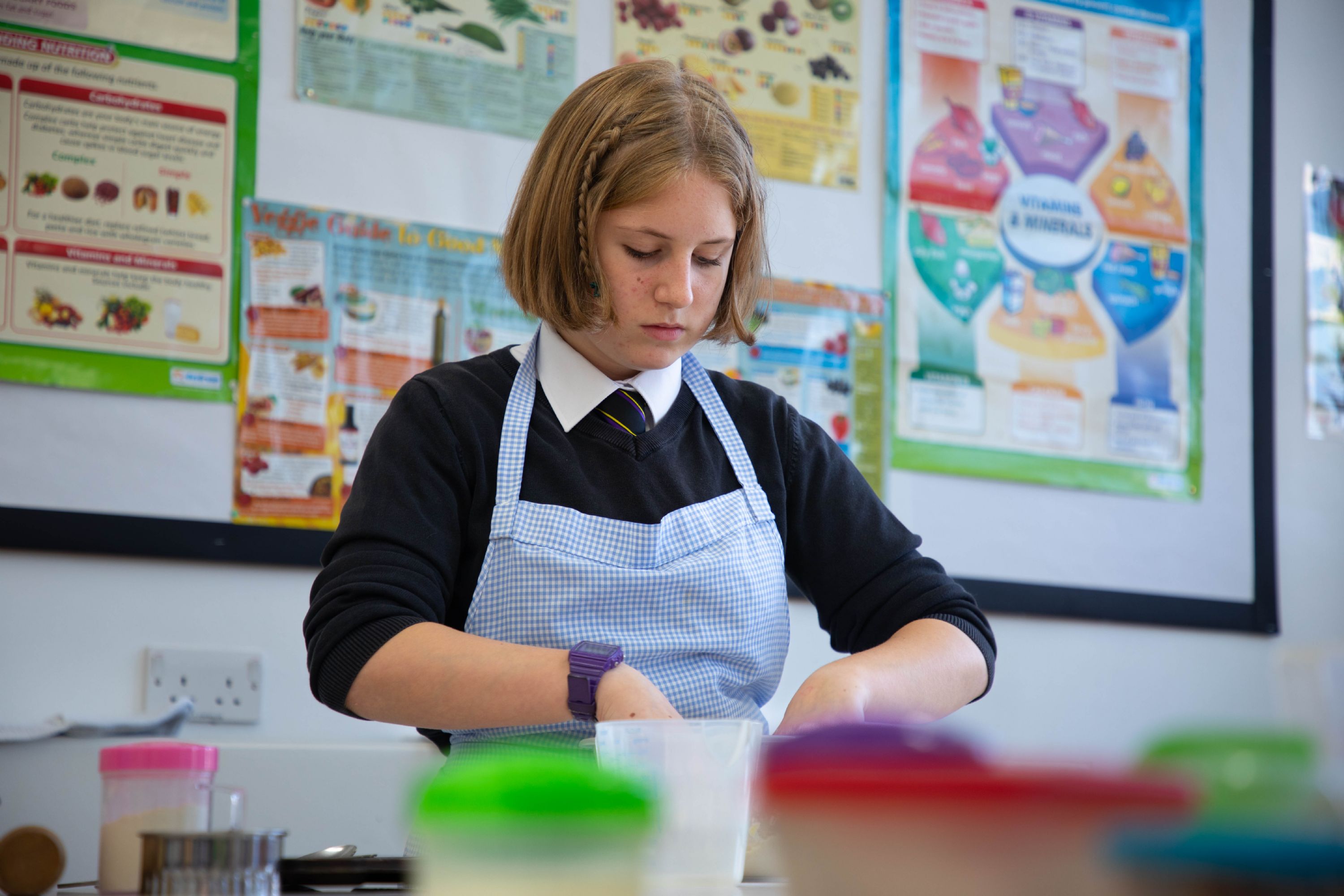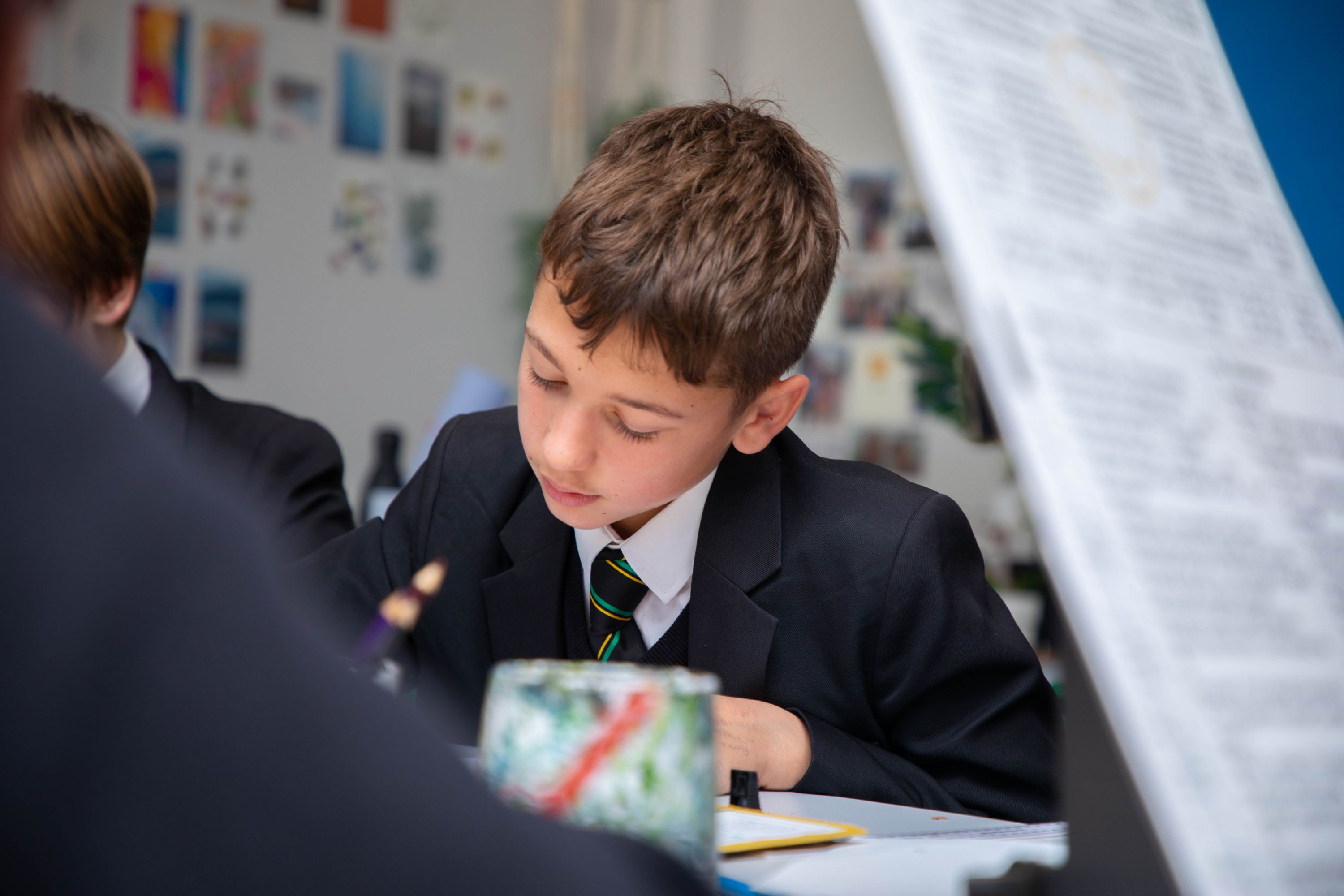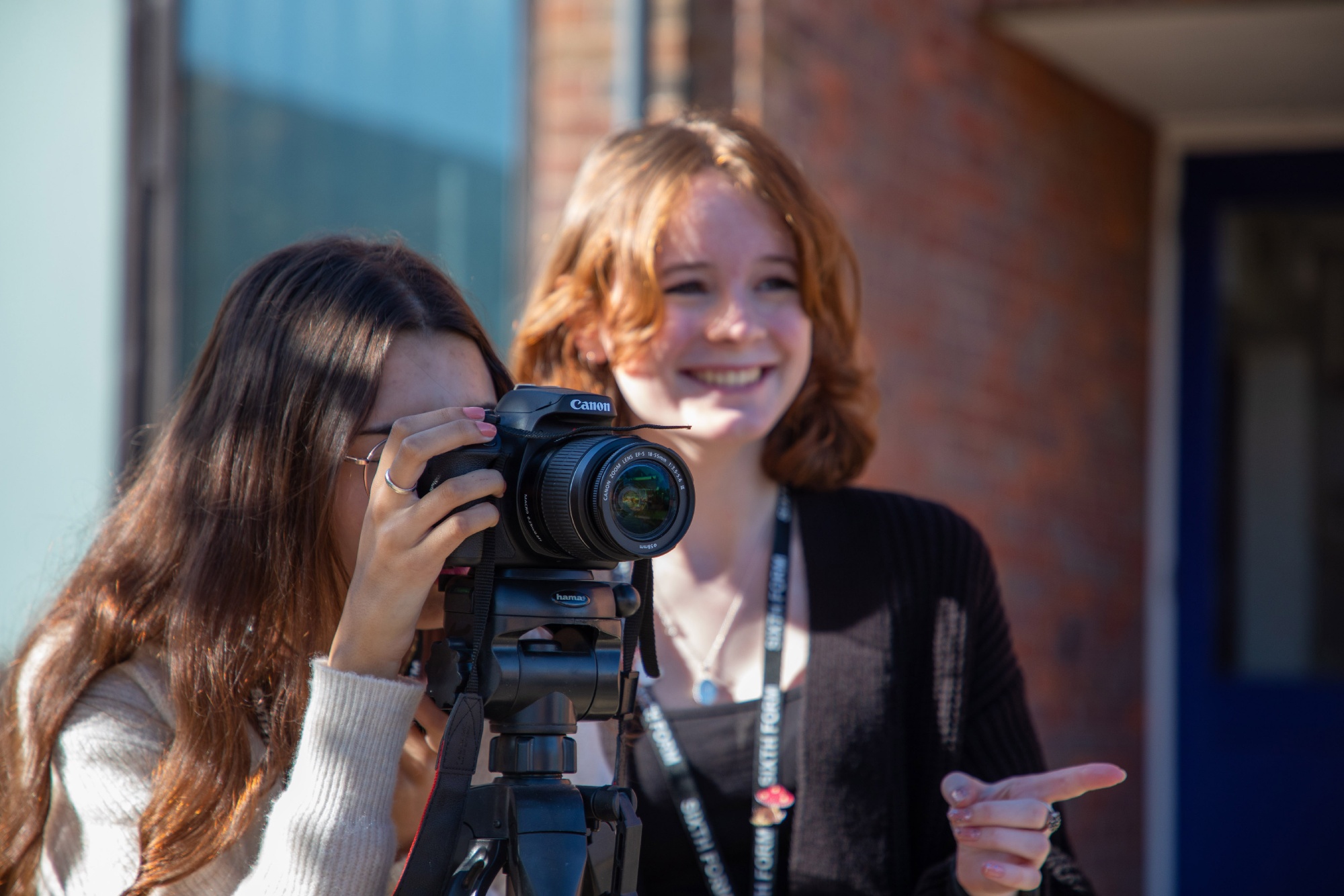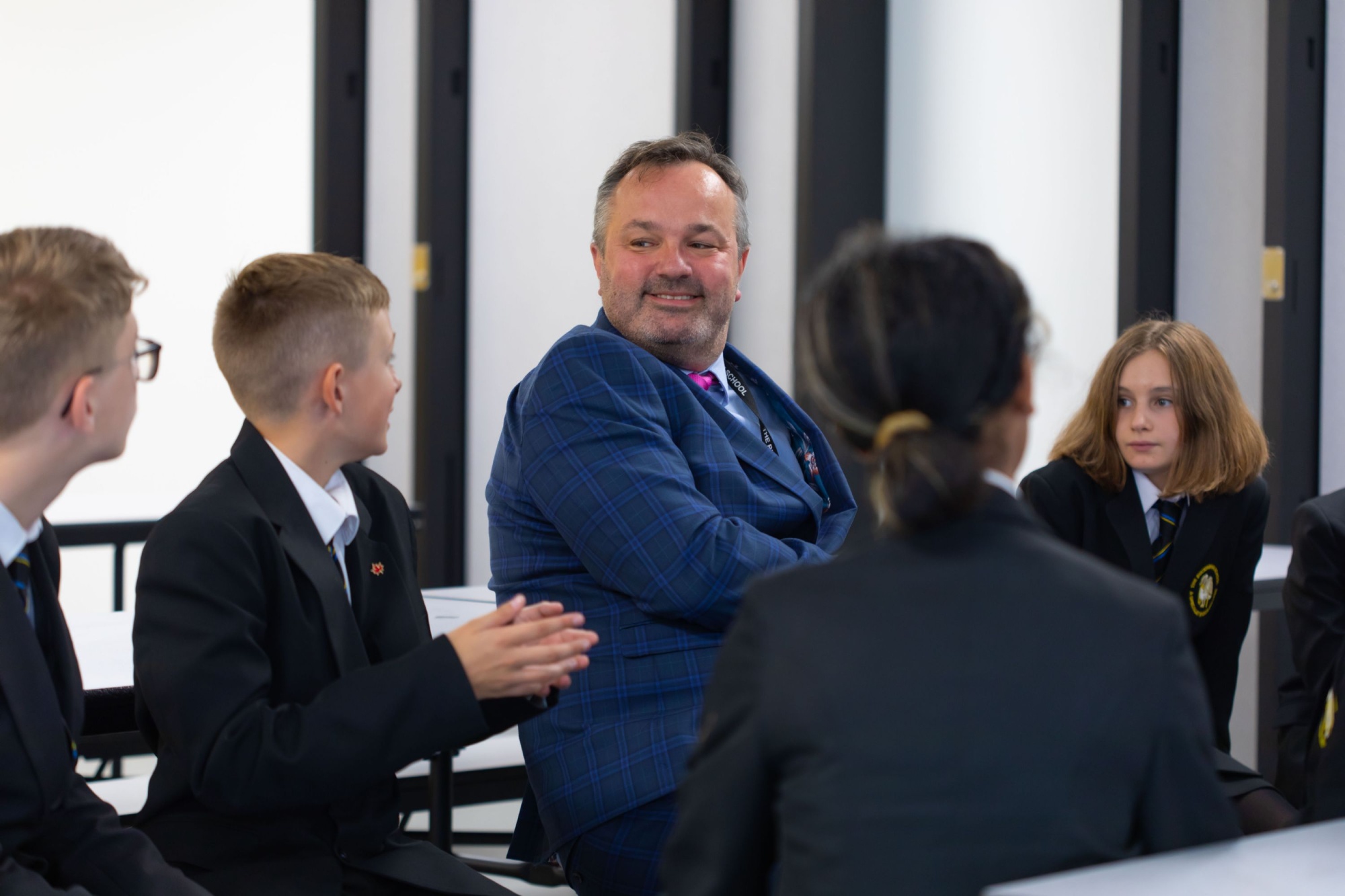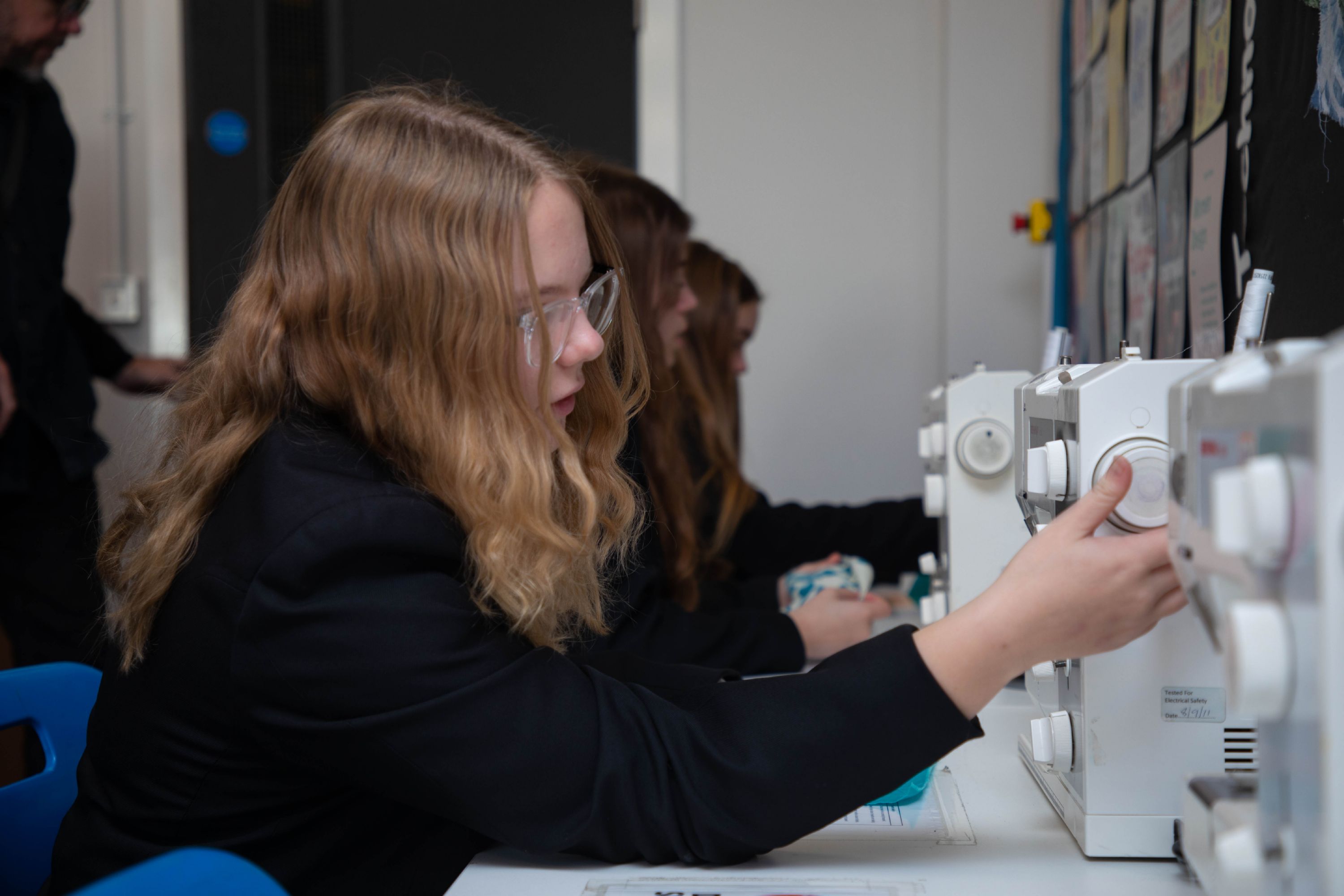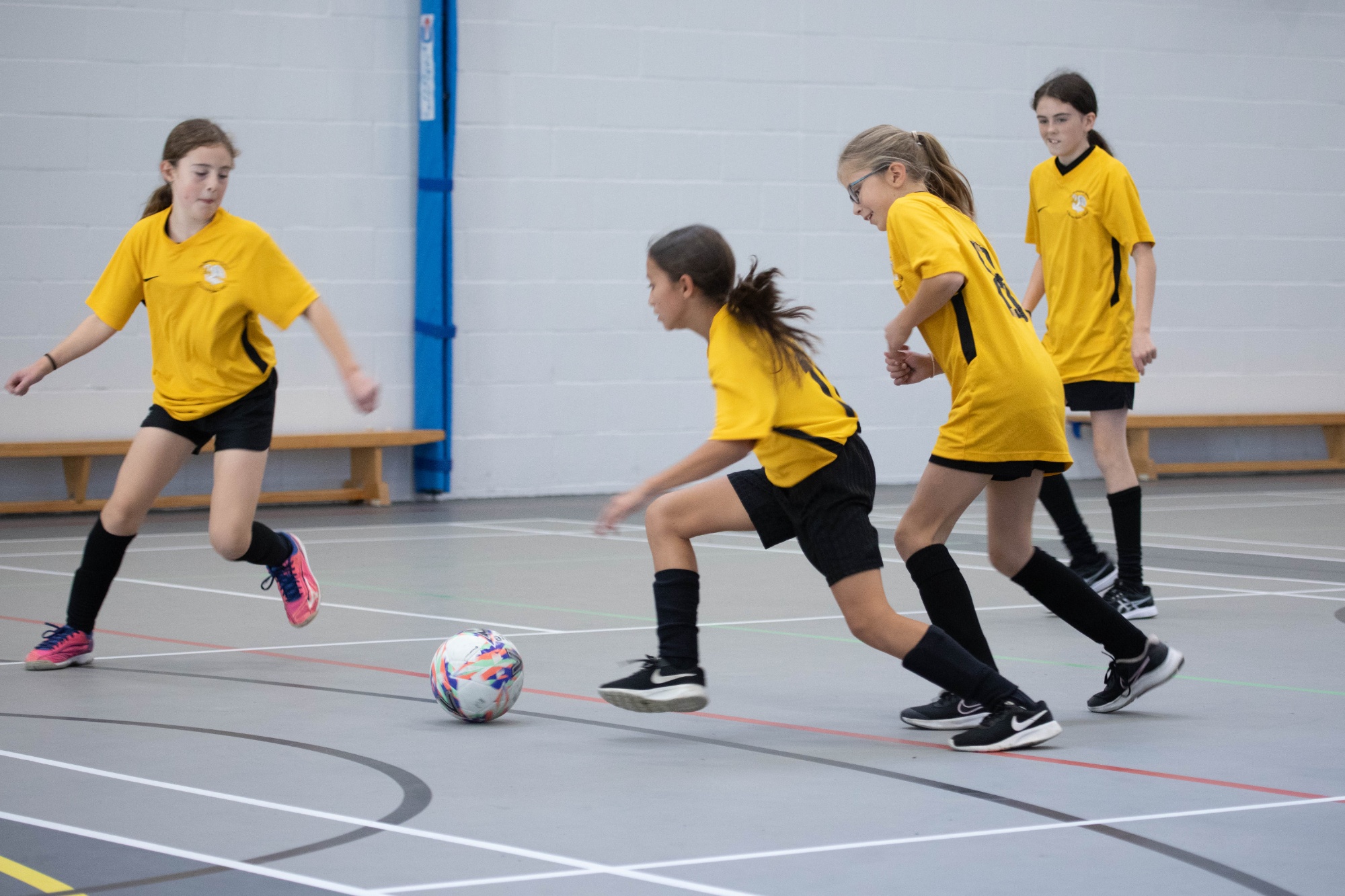Performing Arts (Dance & Drama)
Performing arts department curriculum intent
Curriculum Intent for Dance – Key Stage 3 & 4
At our school, the Dance curriculum at Key Stage 3 and 4 is driven by our inclusive, ambitious, and values-led ethos, delivering Success for All by nurturing academic progress, personal growth, and social awareness. Dance is a powerful vehicle for self-expression, creativity, physical literacy, and emotional intelligence, enabling all students—regardless of background or ability—to thrive as confident, resilient, and responsible individuals.
Key Stage 3 – Engaged: Learning with Kindness and Curiosity
In Key Stage 3, the Dance curriculum is designed to ignite curiosity and foster a deep enjoyment of movement, performance, and collaboration. Students are encouraged to explore dance styles from diverse cultures and genres, broadening their understanding of the world and promoting empathy, inclusion, and respect for others. There is a focus on creativity through development of their own choreography skills. Students will also gain respect for professional performance through experiencing a range of professional dance works both as a participant and as a viewer.
Through engaging and imaginative lessons, students learn to express themselves creatively while building physical confidence, coordination, and teamwork skills. Dance at KS3 emphasises kindness, mutual respect, and collaboration, with students regularly reflecting on their learning, progress, and personal impact within the group.
We teach students to take responsibility for their effort, attitude, and contributions in class, helping them to develop a growth mindset and pride in their achievements. By the end of KS3, students are enthusiastic, reflective learners who understand the importance of resilience, discipline, and community within a creative context.
Key Stage 4 – Independent: Taking Responsibility for Learning and Growth
In Key Stage 4 GCSE Dance, students deepen their understanding of dance through structured choreography, performance, and analysis. The curriculum enables them to take increasing ownership of their learning journey, encouraging independence in both creative decisions and critical reflection. Students are challenged to explore personal and societal themes through dance, building emotional intelligence, cultural awareness, and a strong sense of social responsibility.
Through solo and group work, they continue to develop their technical and expressive skills, demonstrating discipline, perseverance, and pride in their craft. Reflection is embedded throughout the curriculum, allowing students to critically evaluate their progress, refine their work, and articulate their creative intentions with clarity.
Our inclusive approach ensures all students, regardless of prior experience or ability, feel supported and empowered to succeed. The professional works used within the GCSE dance curriculum are designed to promote and reflect the wider dance community. By the end of KS4, dance students are confident, self-aware individuals prepared for further study or lifelong participation in the arts. They emerge not only as skilled performers and choreographers, but as reflective, respectful, and resilient young people ready to contribute meaningfully to society.
Dance at our school is more than a subject—it is a platform for self-discovery, growth, and expression, deeply aligned with our whole-school commitment to Success for All.
Curriculum Intent for Drama
The Drama curriculum at The Buckingham School is designed to inspire creativity, build confidence, and foster empathy through practical and theoretical exploration of performance. Grounded in our core values of Respect, Responsibility, and Reflection, our curriculum empowers all students—regardless of background or experience—to explore their voice, collaborate with others, and express their understanding of the world around them.
Drama is a vehicle for personal growth, cultural awareness, and social engagement, where students develop not only performance skills but also transferable life skills. We champion Success for All, ensuring our curriculum is inclusive, progressive, and aspirational.
Curriculum Vision by Key Stage:
Key Stage 3: Engagement – Learning with Kindness and Curiosity
Year 7 – Introduction to Drama Skills
- Focus: Voice, movement, improvisation, characterisation
- Respect: Active listening, valuing contributions, inclusivity
- Responsibility: Commitment to rehearsal, group work
- Reflection: Peer and self-evaluation
Year 8 – Devising and Frantic Assembly
- Focus: Physical theatre, devising techniques
- Respect: Cooperation, physical trust, ensemble work
- Responsibility: Leading creative processes
- Reflection: Evaluating meaning and movement
Year 9 – Drama and the Modern World
- Focus: Social media, contemporary texts, challenging themes
- Respect: Maturity in handling sensitive issues
- Responsibility: Research, scripting, leading devising
- Reflection: Social impact and performance analysis
End of KS3 Outcome: Curious, respectful, and reflective learners with strong foundational drama skills.
Key Stage 4: Independence – Taking Responsibility for Learning and Growth
Years 10 & 11 – OCR GCSE Drama
- Focus: Devising, performance, textual analysis, live theatre review
- Respect: Cultural and contextual understanding of texts
- Responsibility: Independent learning, preparation, and research
- Reflection: Evaluation of practical and written work
End of KS4 Outcome: Independent, articulate, and self-aware performers prepared for further education or future careers.
Summary: The Drama curriculum at The Buckingham School is:
- Inclusive – accessible for all learners
- Ambitious – challenges students to aim high
- Values-driven – shaped by respect, responsibility, and reflection
Our curriculum provides a coherent and progressive learning journey that prepares students for academic success, personal growth, and meaningful contributions to society.
Performing arts department ethos
In The Buckingham School’s Dance and Drama Department, creativity thrives in a culture shaped by kindness, respect, reflection, and responsibility. We believe that every individual — whether performer, choreographer, technician, or designer — brings something unique to our shared creative journey.
Kindness is the heartbeat of our department. We uplift and support one another — celebrating individuality, encouraging courage, and fostering a safe space where all voices can shine, both on and off the stage. We share ideas openly, knowing that collaboration enriches every creation.
Respect is our foundation. We listen deeply, speak thoughtfully, and honour each other’s contributions — from devised choreography and original scripts to the unseen but vital work of backstage and technical teams. We value the process as much as the performance, and every role is respected as essential.
Reflection guides our growth. Whether we’re watching from the wings, giving peer feedback, or exploring new ideas in rehearsal, we learn through openness and honesty. We take pride in our work, and we grow through sharing, questioning, and evolving — both as artists and as people.
Responsibility drives us. We are responsible for ourselves, for each other, and for the stories we bring to life. We understand the power of performance — to challenge, to uplift, to connect — and we aim to create with purpose, passion, and integrity.
In our department, we are performers, choreographers, directors, designers, and technicians — and above all, we are collaborators. We support each other’s visions, celebrate one another’s successes, and take pride in building a space where everyone feels seen, heard, and valued.
Together, we move with intention, create with compassion, and perform with pride — united by our shared commitment to the transformative power of the arts.
Click on the links below for Dance
Careers linked to dance
Example Careers in Performing Arts & Entertainment
- Professional Dancer – Performs in theatre, television, music videos, or live events
- Choreographer – Designs and directs dance routines for performances
- Dance Captain – Leads and rehearses dancers in a production
- Stage Performer – Works in musicals, plays, or themed entertainment
Education & Teaching
- Dance Teacher – Teaches dance in schools, studios, or community settings
- University Lecturer – Educates students in higher education on dance theory and practice
- Workshop Facilitator – Runs dance sessions for youth groups or special interest groups. Health & Therapy
- Dance Movement Therapist – Uses dance to support emotional and psychological healing
- Physiotherapist (with dance specialisation) – Helps performers recover from injury
- Pilates/Yoga Instructor – Teaches body conditioning with an emphasis on movement quality
Media, Production & Management
- Dance Videographer – Captures and edits dance performances for media
- Arts Administrator – Organises events and manages dance programs in an arts organisation
- Talent Agent – Represents dancers and choreographers in the industry
For further information on Dance career pathways, click here.
assessment
Key Stage 3 Dance – Assessment Policy
Overview
At Key Stage 3, Dance is assessed through a structured programme of practical exploration, performance, and verbal evaluation. Our aim is to ensure all students are able to meet the practical standards required for GCSE Dance, while developing their creativity, collaboration, and critical thinking skills. As students receive an hour a fortnight, we felt it was important to ensure all students had the chance to develop the practical skills needed for continuation at GCSE whilst introducing subject-specific vocabulary.
Termly Assessment Structure
- Each term is centred around a specific focus or theme (e.g., a dance style, choreographic device, or cultural influence).
- Students work collaboratively in small groups to explore and respond to the theme through choreography and performance.
- A final group performance is presented at the end of each term, forming the basis of individual assessment.
Assessment
- Practical Performance (Primary Assessment Tool):
- Performances are video recorded to enable thorough and fair individual assessment.
- Recordings are stored securely in the Assessment Folder for reference and moderation.
- Teachers assess each student on:
- Physical skills and technical accuracy
- A final group performance is presented at the end of each term, forming the basis of the individual assessment.
Assessment Methods
- Practical Performance:
- Performances are video recorded to enable thorough and fair individual assessment.
- Recordings are stored securely in the Assessment Folder for reference and moderation.
- Teachers assess each student on:
- Physical skills and technical accuracy
- Expressive skills and performance qualities
- Choreographic contribution and creativity
- Collaboration and rehearsal process
- Ongoing Verbal Evaluation:
- Throughout the term, students are encouraged to:
- Reflect on their own and others' work
- Offer constructive feedback
- Use subject-specific vocabulary
- Verbal evaluations are used to assess students' understanding of dance concepts and ability to analyse performance.
- Throughout the term, students are encouraged to:
- Written Work (Introduced Gradually):
- As students progress through Key Stage 3, short written tasks are introduced to:
- Support verbal evaluations
- Build GCSE-ready vocabulary and written analysis skills
- These may include:
- Choreographic intent statements
- Rehearsal logs or journals
- Simple performance evaluations
- As students progress through Key Stage 3, short written tasks are introduced to:
Assessment Aims
- To provide a practical foundation in performance, choreography, and evaluation.
- To build confidence and competence in dance as a performing art.
- To prepare all students for a successful transition to GCSE Dance by developing key skills progressively.
Feedback and Progress Tracking
- Students receive individual feedback both verbally and via Pupil Progress.
- Assessment videos serve as a tool for:
- Teacher moderation and standardisation
- Reflective feedback sessions with students
- Documenting individual progress over time
KS4 - GCSE Dance Assessment and Feedback Policy
Purpose
To provide a clear and structured approach to assessing and supporting student progress in AQA GCSE Dance. This policy ensures that both practical and theoretical components are assessed fairly, with constructive feedback that promotes continuous improvement.
Assessment Overview
|
Term |
Focus Areas |
Assessment Methods |
Feedback Methods |
|
Year 10 Autumn Term |
- Choreography (initial exploration)- Section A & B of Written Paper |
- Practical tasks (solo/duet choreography tasks)- Written assessments (mock exam questions) |
- Verbal peer and teacher feedback- WWW/EBI written feedback- Marking using AQA mark schemes |
|
Year 10 Spring Term |
- Learning Set Phrases: Breathe and Shift |
- Practical performance assessments- Short written reflections |
- Video analysis sessions- Individual performance tracking sheets |
|
Year 10 Summer Term |
- Study of A Linha Curva, Emancipation of Expressionism, Artificial Things and Duet- Year 10 Mock Exam |
- End-of-year mock (written & practical)- Practical showing of repertoire |
- Full mock feedback sheets- Marked criteria-based performance feedback |
|
Year 11 Autumn Term |
- Choreography paper issued- Shadows and Within Her Eyes- Continued theory |
- Draft and final choreography- Theory assessments on anthology works |
- In-depth marking with AQA criteria- Individual target setting |
|
Year 11 Spring Term |
- Final rehearsals for Set Phrases Duet/Trio and Choreography- Study of Infra |
- Filming of performances- Final theory assessments |
- Formal performance and choreography feedback- Examiner-style paper marking |
Feedback Principles
- Timely: Key assessments marked within 1 week.
- Specific: Clear comments with strengths and actionable targets.
- Consistent: AQA mark schemes used throughout. Moderation ensures fairness.
Expectations for Students
- Year 10: Fully engage with choreography and theory content. Complete all written tasks and prep work.
- Year 11:
- Begin choreography immediately in autumn when paper is issued.
- Rehearse at least once per week outside of lessons.
- Use feedback to refine practical and written work.
- Meet coursework deadlines for feedback opportunities.
Progress Monitoring
- Dance Progress Portfolio (digital or paper) to include:
- Assessment scores
- Feedback summaries
- Personal targets
- Rehearsal logs (Year 11 especially)
Moderation & Standardisation
- Regular in-department moderation:
- Choreography drafts
- Performance assessments
- Mock exam marking
Parental Engagement
- Termly assessment reports shared.
- Parent information evenings (Autumn Year 11).
- Encourage rehearsal support and understanding of deadlines.
For further information, contact Ms Curness at The Buckingham School Dance Department.
Further reading
AQA Dance Anthology
Extended Reading & Revision Resources
- AQA Subject-Specific Vocabulary
A glossary of key terms used in the GCSE Dance specification.
AQA Dance Vocabulary aqa.org.uk - AQA Command Words
Understanding command words is crucial for exam success.
AQA Command Words aqa.org.uk - Dance Phrases Review Cards – Twinkl
A resource to help students review and understand dance phrases.
Twinkl Dance Phrases Review Cards twinkl.co.uk+1aqa.org.uk+1 - How to Revise Like a Pro – DanceResources.co.uk
Offers strategies for effective revision and understanding of the GCSE Dance components.
Dance Revision Guide danceresources.co.uk - GCSE Dance Professional Works & Revision Guide 2024 – Knowunity
Provides insights and summaries of the professional works included in the anthology.
Knowunity Dance Revision Guide danceresources.co.uk+2aqa.org.uk+2aqa.org.uk+2
Assessment & Performance Criteria
Students are assessed on their ability to perform both solo and group dance pieces, as well as their understanding and appreciation of professional works. Key areas of assessment include: aqa.org.ukaqa.org.uk+2danceresources.co.uk+2aqa.org.uk+2
- Performance Skills: Physical, technical, expressive, and mental skills .aqa.org.uk
- Choreography: Creation of dance pieces demonstrating choreographic processes and devices. aqa.org.uk+2aqa.org.uk+2danceresources.co.uk+2
- Dance Appreciation: Critical analysis and evaluation of professional works and own performance.
Detailed information on assessment objectives and criteria can be found in the AQA GCSE Dance Specification: AQA GCSE Dance Specification
This curated list aims to support students at The Buckingham School in their study and appreciation of GCSE Dance. Engaging with these resources will enhance the understanding, performance skills, and critical analysis required for success on the course.
learning journey
Accordion content
Revision resources
Year 7
Copy of musical theatre Yr 7 term knowledge organiser 3 & 4
Year 8
Key Stage 3 Dance Choreography Knowledge Organiser
Performance skills and techniques knowledge organiser
Year 9
Knowledge-Organisers Swansong 24
GCSE Dance
KO---Performance
KO---Shadows
KO---Infra
KO---EofE
KO---Artificial-Things
KO---Choreography
KO---A-Linha-Curva
KO---Within-Her-Eyes
Click on the links below for Drama
Careers linked to drama
Careers - Performing & Creative Arts
- Actor – Performs in plays, film, or TV
- Stage Director – Oversees a production’s vision
- Playwright – Writes scripts for performance
- Stage/Set/Costume Designer – Designs performance environments
- Drama Therapist – Uses drama in therapy to support emotional wellbeing
Careers - Technical & Production
- Lighting Technician – Designs lighting effects
- Sound Engineer – Operates sound equipment in theatre or media
- Make-up Artist – Creates character looks for performances
Careers - Education & Community
- Drama Teacher – Teaches in schools or colleges
- Youth Theatre Worker – Runs drama activities for young people
- Workshop Facilitator – Delivers creative sessions in schools or communities
Careers - Media, Business & Public Sector
- TV/Radio Presenter – Hosts broadcasts and events
- Public Relations Officer – Creates and shares key messaging for organisations
- Events Manager – Plans and coordinates creative or professional events
- Corporate Trainer – Delivers communication and leadership training using drama-based techniques
ASSESSMENT
Key Stage 3 Drama – Assessment Policy
Overview
At Key Stage 3, Drama is assessed through a structured programme of practical exploration, performance, and verbal evaluation. Our aim is to ensure all students are able to meet the practical standards required for GCSE Drama, while developing their creativity, collaboration, and critical thinking skills. As students receive an hour a fortnight we felt it was important to ensure all students had the chance to develop the practical skills needed for continuation at GCSE whilst introducing subject specific vocabulary.
Termly Assessment Structure
- Each term is centred on a specific focus or theme (e.g., a drama genre or style, cultural influence or specific text).
- Students work collaboratively in small groups to explore and respond to the theme through devising and performance.
- A final group performance is presented at the end of each term, forming the basis of the individual assessment.
Assessment
- Practical Performance :
- Performances are video recorded to enable thorough and fair individual assessment.
- Recordings are stored securely in the Assessment Folder for reference and moderation.
- Teachers assess each student on:
- Physical skills, creative skills and use of genre and style.
- A final group performance is presented at the end of each term, forming the basis of the individual assessment.
Assessment Methods
- Practical Performance:
- Performances are video recorded to enable thorough and fair individual assessment.
- Recordings are stored securely in the Assessment Folder for reference and moderation.
- Teachers assess each student on:
- Expressive skills and performance qualities
- Creativity & Devising skills
- Collaboration and rehearsal process
- Ongoing Verbal Evaluation:
- Throughout the term, students are encouraged to:
- Reflect on their own and others' work
- Offer constructive feedback
- Use subject-specific vocabulary
- Verbal evaluations are used to assess students' understanding of drama concepts and ability to analyse performance.
- Throughout the term, students are encouraged to:
- Written Work (Introduced Gradually):
- As students progress through Key Stage 3, short written tasks are introduced to:
- Support verbal evaluations
- Build GCSE-ready vocabulary and written analysis skills
- These may include:
- Rehearsal logs or journals
- Simple performance evaluations
- As students progress through Key Stage 3, short written tasks are introduced to:
Assessment Aims
- To provide a practical foundation in performance, creation, and evaluation.
- To build confidence and competence in Drama as a performing art.
- To prepare all students for a successful transition to GCSE Drama by developing key skills progressively.
Feedback and Progress Tracking
- Students receive individual feedback both verbally and via Pupil Progress.
- Assessment videos serve as a tool for:
- Teacher moderation and standardisation
- Reflective feedback sessions with students
- Documenting individual progress over time
OCR GCSE Drama – Assessment and Feedback Policy
Overview
This policy outlines the approach to assessment and feedback for students undertaking the OCR GCSE Drama course. It ensures consistent monitoring of progress, effective feedback strategies, and the integration of theory and practice across the course’s components.
Curriculum Context
- Unit 1: Devising Drama
- Unit 2: Presenting and Performing Texts (Scripted)
- Unit 3: Performance and Response (Written Exam)
- Section A: Blood Brothers (Set Text)
- Section B: Live Theatre Evaluation
Assessment Schedule
Unit 3 Focus – Theory Lessons (1 lesson per fortnight)
- Autumn Term – Spring Term (until live theatre viewed):
- Focus on Blood Brothers
- Study characters, themes, staging, and design elements
- Practice responding to Section A exam-style questions
- Every 2 weeks: Students complete one question for homework
- Half-termly assessment: 30-minute exam paper (Section A only)
- Feedback within 1 week with WWW/EBI (What Went Well / Even Better If)
Post-Live Theatre Visit (spring – Summer Term):
- Continued focus on Blood Brothers
- Introduction to Section B: Live Theatre Evaluation
- Practice 30-mark questions based on the seen performance
- Fortnightly extended writing tasks with peer and teacher feedback
- Termly mock paper covering both sections of Unit 3
Ongoing Rehearsal and Practical Work (Remaining 4 lessons per fortnight)
Unit 1: Devising Drama / Unit 2: Scripted
- Students are expected to:
- Rehearse regularly and come prepared with materials
- Make weekly notes in their Drama Journal or Google Docs reflecting on:
- Character development
- Directorial/technical decisions
- Rehearsal targets
- These notes will inform their portfolio (for Devising) or evaluation (for Scripted)
Ongoing Assessment:
- Formative observation notes taken by the teacher during rehearsals
- Weekly verbal feedback
- Written feedback every half term on rehearsal logs and performances
- Checkpoint performances: informal assessment in class every half term
Feedback Policy
- Written Tasks:
- Marked using OCR mark schemes
- Feedback includes:
- WWW (What Went Well)
- EBI (Even Better If)
- A specific action task or target question
Practical Work:
- Ongoing verbal feedback during lessons
- Self and peer assessment forms are used every half term
- Formal performance assessments (filmed when appropriate)
Drama Journals/Portfolios:
- Reviewed at the end of every half term
- The teacher gives holistic comments and improvement suggestions
Student Expectations
- Attend all lessons punctually and participate actively
- Bring required materials (scripts, journals, pens, etc.)
- Complete all written tasks and reflections by deadlines
- Rehearse outside of class where necessary
- Maintain a Drama Journal/Portfolio with:
- Practical notes
- Rehearsal reflections
- Performance evaluations
Support and Intervention
- Students not meeting expected standards in writing or performance:
- Targeted support through lunchtime sessions or after-school rehearsals
- Individual learning plans for exam writing support
- Peer mentoring during rehearsals and theory tasks
FURTHER READING
Extended Reading and Resource List OCR GCSE Drama
Component 2: Performance from a Text
Students are required to perform two extracts from a published play. The following plays for TBS are:
DNA by Dennis Kelly
- Full Performance: Genesis Theatre's production offers a comprehensive view of the play's dynamics.
Watch hereyoutube.com - Educational Playlist: Mr Bruff's series provides in-depth analysis and character breakdowns.
View playlistyoutube.com+1stageagent.com+1
Girls Like That by Evan Placey
- Synergy Theatre Project: A powerful portrayal addressing themes of cyberbullying and gender dynamics.
Watch hereconcordiacourier.com+2sceneoneplus.com+2oxfordhigh.gdst.net+2 - Additional Performance: GEMS CIK Creative Arts' rendition provides another perspective.
Watch herefacebook.com+1youtube.com+1
Be My Baby by Amanda Whittington
- Edinburgh Fringe Production: Captures the essence of 1960s societal expectations.
Watch here - Derby LIVE Trailer: Provides insights into the play's themes and setting.
Watch hereyoutube.com+35oxfordhigh.gdst.net+35youtube.com+35
Component 3: Presenting and Performing Texts
This component involves the practical exploration and performance of a scripted play. We have selected:
Blood Brothers by Willy Russell
- Full Musical: Marjorie Lyons Playhouse's rendition showcases the musical's emotional depth.
Watch hereyoutube.com - West End Production: A playlist featuring the original West End performance.
View playlist
For the second section (worth 30 marks) at present we are focusing on:
Dear Evan Hansen by Pasek & Paul
- Full Musical: A comprehensive performance capturing the show's intricate themes.
Watch heredecider.com - Tony Awards Performance: Ben Platt's rendition of "Waving Through a Window" highlights the musical's emotional core.
Watch hereyoutube.com
Recommended Revision Guides
To support your studies, consider the following revision books:
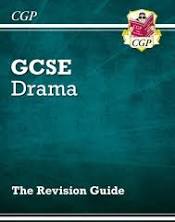
Top Selections Explained:
- OCR GCSE (9-1) Drama by Annie Fox
An official OCR-endorsed guide offering detailed insights into the curriculum, practical advice, and exam preparation tips. - GCSE Drama Revision Guide by CGP Books
Known for its clear layout and engaging content, this guide covers all essential topics, including performance and design elements. - GCSE Drama Play Guide – Blood Brothers by CGP Books
Specifically tailored for 'Blood Brothers,' this guide delves into character analysis, themes, and key scenes, aiding in-depth understanding.
Engaging with these resources will enhance your comprehension and performance skills, providing a solid foundation for success in OCR GCSE Drama.
Learning journey
Accordion content
REVISION RESOURCES
Year 7
Knowledge organiser Inside Out
Terminology-and-definitions knowledge organiser
Year 8
War Horse knowledge organiser
Devising knowledge organiser
Year 9
Script-Writing knowledge organiser
Responding-to-drama knowledge organiser
Drama-toolkit Knowledge organiser
GCSE Drama
KO-Devising-Drama-Evaluation.pdf
KO-Devising-Drama-Section-2.pdf
KO-Devising-Drama-SECTION-1.pdf

